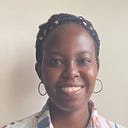Interview with Debut Novelist, Scott Alexander Howard on The Other Valley
Author Q&A
The novelist talks truth in storytelling, interior worlds, and the relief of getting published.

Scott Alexander Howard contemplates the lives of a town’s residents against a landscape that physically unfolds across time. The story follows protagonist Odile and her friends as they make their way in the world and raises questions about whether the steps we take must be informed by past decisions, or if it’s possible to carve a new path to a more fulfilling life. A resident of Vancouver, British Columbia, Howard holds a Ph.D. in philosophy from the University of Toronto and was a postdoctoral fellow at Harvard, where his work focused on the relationship among memory, emotion, and literature.
The Other Valley addresses some heavy philosophical themes. How did you give them the attention they deserved without making the book feel dense?
Your question makes me think of something Timothy Williamson, a British philosopher, once said. He was talking about how to achieve depth in writing, and he pointed out that if you try to be deliberately deep, you will produce writing that isn’t. It’s pretentious or “dense” instead. If you aim for truth, you get depth for free. My goal was to tell a story that felt true and let any deeper philosophical themes emerge naturally, if and where they wanted to. As a result, anything that feels philosophical in The Other Valley is tightly connected to Odile and her story. It’s there because it’s true to her situation and world, not because I consciously tried to address any particular theme. The best way to write a philosophical novel is to ignore philosophy as much as possible.
The main character, Odile, makes choices as a 16-year-old that significantly alter her future. What questions about free will and predestination were you hoping to explore in telling her story?
I don’t want to give away any choices Odile makes by how I answer this question, so I’ll say this: More than free will, I’m interested in the relationship between someone’s identity and their circumstances, and especially their luck. Luck can change our lives, but typically, when we imagine our lives changing, we assume that we’ll still be ourselves, just headed down a different path. In reality, the path molds and alters us. The person walking it is fundamentally different from the person who set out. Odile is a person whose life is heading in one direction, and then, in a single moment, she starts heading in another. I wanted to explore how that change affected who she became compared with who she might have been. In the novel’s world, the person she used to be is still alive on the other side of …Read the full interview at Washington Independent Review of Books
This article was written with support from the DC Arts Writing Fellowship, a project of the non-profit Day Eight.
